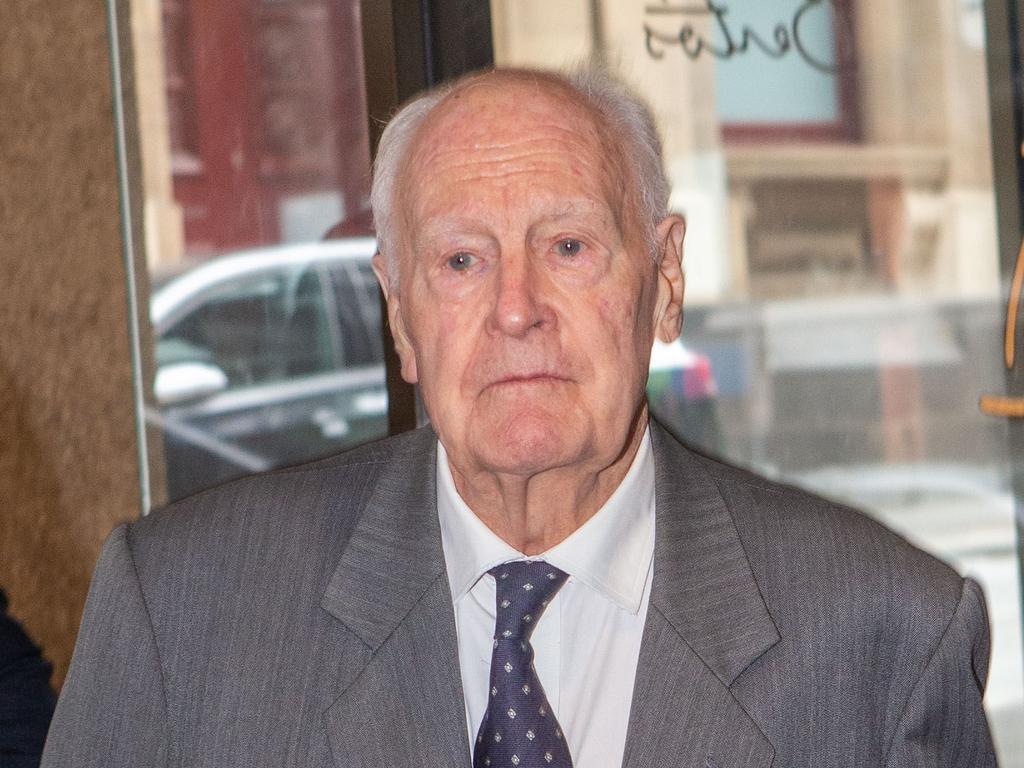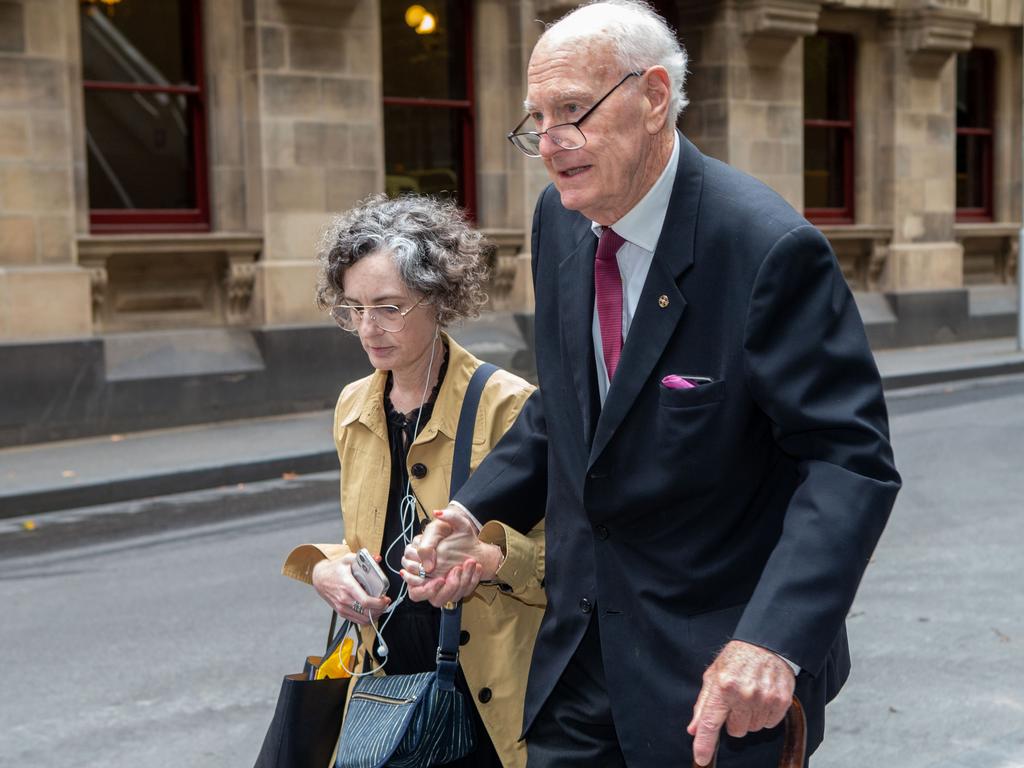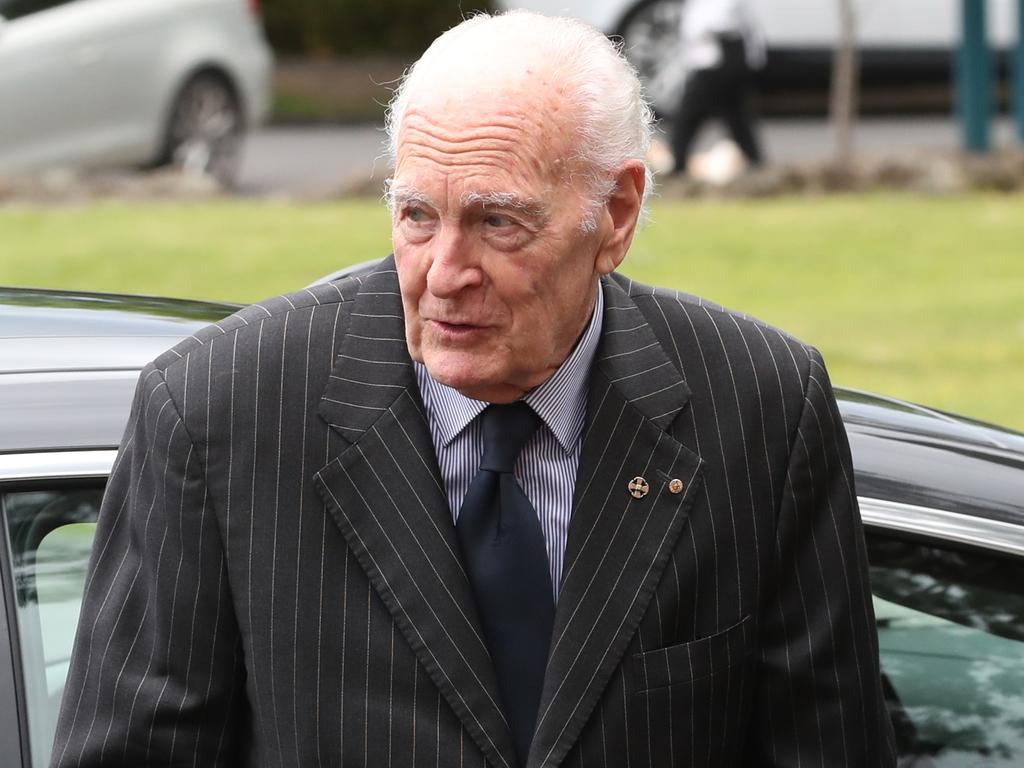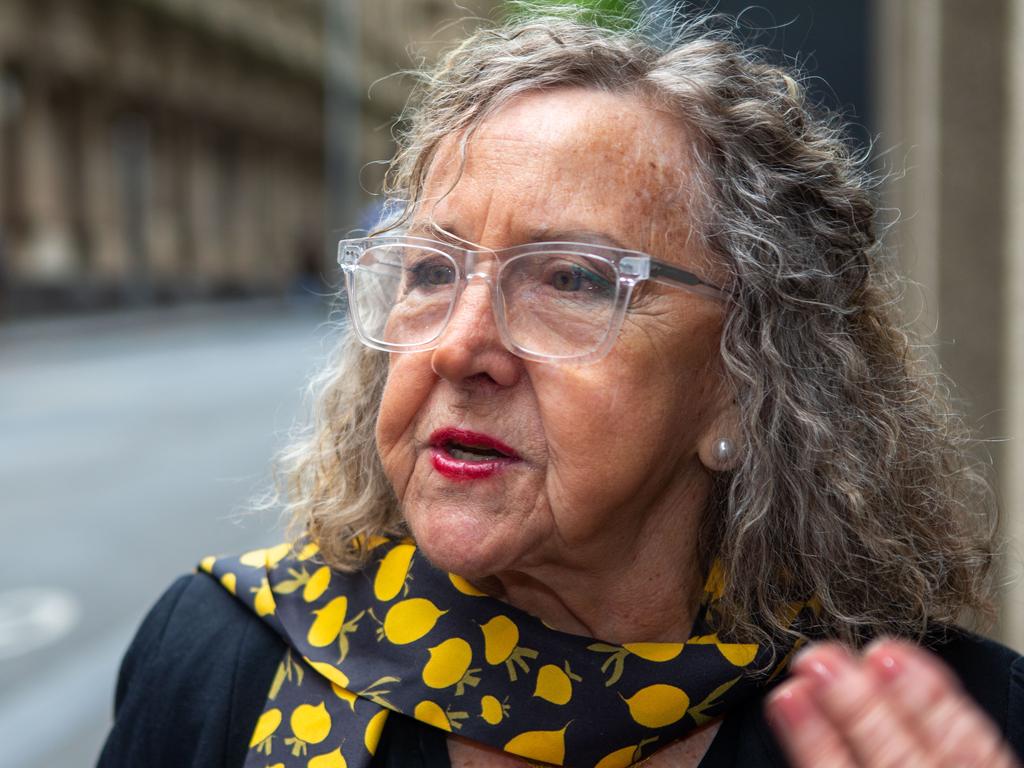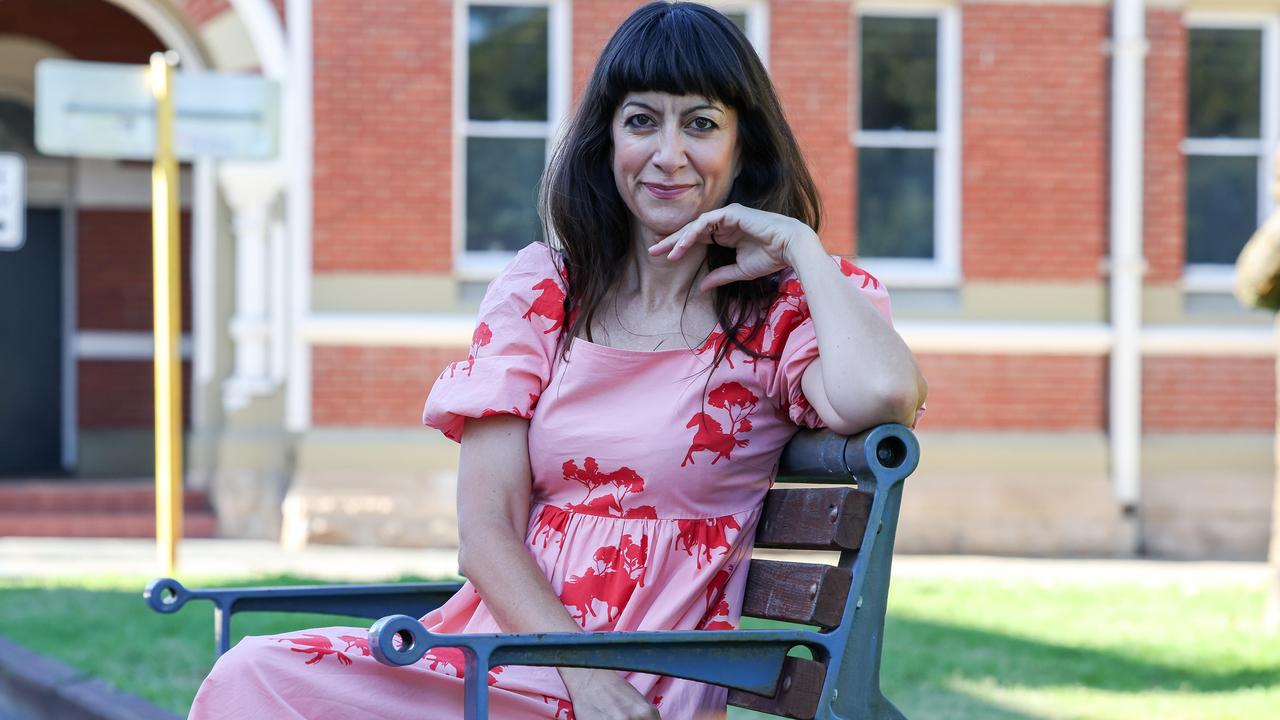‘Peter Hollingworth knew of sex abuse harm in 1995’
Former GG penned a foreword to his church’s sex abuse policy nearly 30 years ago that outlined his knowledge of the harms caused by pedophiles but he still allowed offenders to preach.
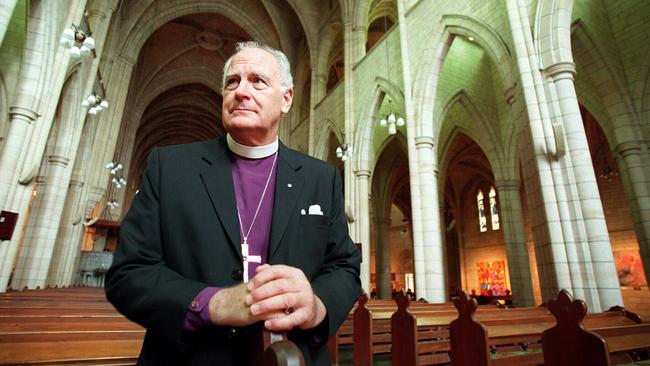
Former governor-general Peter Hollingworth professed clear knowledge of the harms caused by pedophiles nearly 30 years ago, contradicting a finding of the church board that allowed him to retain his ministry, an internal Anglican document reveals.
The legal board set up by the church to examine Dr Hollingworth’s misconduct over many years found he erred as archbishop of Brisbane because of a failure to understand the “profound and lifelong effects sexual abuse can have on a child” rather than from any moral failure.
The Australian can reveal, however, that Dr Hollingworth signed a foreword to a church document for use when complaints of sex abuse were made against officials in Brisbane, signed by him in September 1995 and stating that he knew the impacts of offending.
“Sexual abuse in any form is not acceptable in the life of the church,” Dr Hollingworth wrote. “Where it has occurred, it has been a serious breach of pastoral responsibility and can have been the cause of deep and long-term hurt in the life of victims.”
The document has been referred to internal church investigators to determine whether the findings into Dr Hollingworth’s fitness to officiate should be appealed. The same document where Dr Hollingworth signs the forward states on a facing page that sex abuse can have a “drastic” impact on victims.
“The protocol is based in the end on an acknowledgement of the possibly drastic implications of such abuse – violation of the pastoral relationship, carrying with it serious breach of trust, injury to the victim, and betrayal of the wider church,’’ it states.
Bill Doogue, a lawyer acting for Dr Hollingworth, said his client did not see a contradiction between the 1995 protocol and findings of the Professional Standards Board and it was untenable to suggest his understanding nearly 30 years ago was as developed as it was later. “The 1995 protocol makes it clear that understanding of the child abuse issue was evolving and the protocol was subject to revision because of the process of further learnings,” he said.
“A full and fair reading of the board’s findings would show that there was expert evidence that Dr Hollingworth had engaged in a lot of learning after he resigned as governor-general and developed a deeper understanding of the effects of child abuse.’’
The protocol document was an exhibit to the child sex abuse royal commission and was one of thousands of papers that should have been available to the Anglican Diocese of Melbourne’s Professional Standards Board, headed by Robin Brett KC.
Despite Dr Hollingworth’s 1995 concession, the board in April found: “Counsel for the respondent (Dr Hollingworth) submitted the respondent’s acts of misconduct, should we find them to have been committed as in fact we have, did not occur as a result of any fundamental defect of morality in the respondent.
“We have accepted that that is the case, and that his misconduct arose ultimately from his failure to understand the profound and lifelong effects that sexual abuse can have on a child.”
Professional Standards Board secretary Nicholas Bird, a barrister, said: “The board has published its recommendations and determination, and does not wish to make any further comment.”
The board found Dr Hollingworth guilty of a series of misconduct allegations but did not defrock him for his wrongdoing, allowing him to undertake some priestly functions.
Several of the misconduct charges against Dr Hollingworth and ratified by the board occurred after the 1995 statement of knowledge authored by Dr Hollingworth. They relate to the late clergy sex offenders Donald Shearman and John Elliot and the sexually abusive school counsellor Kevin Lynch.
The Professional Standards Board found that in 1998 (and 1993), Dr Hollingworth allowed Elliot to remain in ministry when he knew he had sexually assaulted children and posed a risk to the safety and wellbeing of children.
It found he had committed misconduct in the mid-1990s by permitting Shearman, who he knew had sexually assaulted a child, to retain his permission to officiate. It also found that about seven years later he had made a statement about Shearman’s victim, Beth Heinrich, that was insensitive and distressing.
Ms Heinrich said in late 1995 – after Dr Hollingworth signed the forward to the protocol – the then archbishop had failed to act against her abuser. “The fact is, he’s not fit to be a priest,” she said.
UniSA adjunct professor Chris Goddard said Dr Hollingworth had failed to act against known sex abusers and, more broadly, it should be a crime in all states and territories if people fail to report sex offences.
The board found Dr Hollingworth had committed misconduct in seven of the 10 complaints made against him.
A spokeswoman for Kooyoora, the church in Victoria’s overall response to the royal commission, said a decision on whether to appeal against the findings of the Professional Standards Board would be made within 30 days of the April 24 findings.


